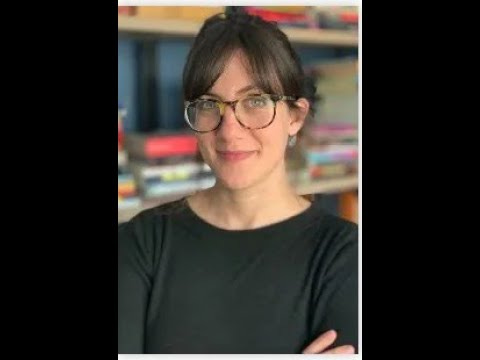"Translators Connect the World." A Chat With Denise Kripper, Translation Editor of Latin American Literature Today
Editor takes us behind the scenes of online mag dedicated to contemporary Latin American lit
Another interview is in the books!
Today I had the absolute pleasure of chatting with Denise Kripper, Translation Editor for Latin American Literature Today. This magazine “is a journal associated with World Literature Today that seeks to reflect new realities of Spanish-language literature through a quarterly online publication, circulating in the United States as well as the literary communities of Latin America and Spain.”
This magazine came about in 2017, and Denise joined in 2019. They publish issues online four times per year and seek to offer space for a range of writers contributing from all parts of Latin America. All work is published in both Spanish and English.
Denise is absolutely passionate about translation. She has written a book on “Fictional Translators in Latin American Literature” and also teaches Latin American Literature and Translation Studies. Thus we took a brief digression from the magazine itself to talk about translation in general.
It is a fascinating discipline that, admittedly, I haven’t spent much time thinking about. A good translator needs to consider multiple layers in the original work (is the author using a particular word to create a mood? To evoke a feeling? To foreshadow an event?), and also understand both the culture from which they are translating as well as the culture of the target readership. Translation requires a robust understanding of literature, history, society and, of course, language itself.
Who knew!
Perhaps you did. If you are a translator, and specifically if you work with Latin American authors, this would be the magazine you must learn more about. Denise said that they are always open for volunteers and they are also always on the lookout for new translators. If you contact them, you can be added to their translator directory.
From the site:
“We are excited about the opportunity to further collaborate with translators, so if you have an idea you want to pitch to us, be sure to send us an email with “translation pitch” in the subject field.
We are also looking for good Spanish-English translators who are willing to translate content submitted in Spanish. This may include essays, interviews, book reviews, and fiction and poetry. If you are interested in collaborating, please email with ‘translation collaboration’ in the subject field.”
Denise is also open to pitches for themes for their Dossiers, which is a segment of their site dedicated to a particular writer or theme in Latin American literature.
As far as submissions go, what exactly are these editors looking for? What are common reasons for work to be rejected? Who is the audience they are trying to reach and how does this magazine reach them?
For the answers to these questions and more, you’ll have to watch this video, my friends.
To all who came out to participate today, thanks for tuning in! Your faces are the engine in my plane, the water in my drinking well!
And, of course, thank you to Denise, who is a brand new mom! And who took the time to take us behind the scenes of another important little magazine.
Happy viewing!




A fun interview. I like Denise’s definition of a bad translation as one that people don’t want to read.
Sometimes a translation can just go bad. In a 1978 interview in Translation Review, Gregory Rabassa said, “I have always felt that while the original endures and remains eternally young, the translation ages and must be replaced.” This suggests the translation process for a work is never really finished and must be revisited periodically.
I appreciate LALT’s focus on today’s writing (perhaps as a way to keep the project manageable), but wonder about the classics, many of which probably need refreshed translations.